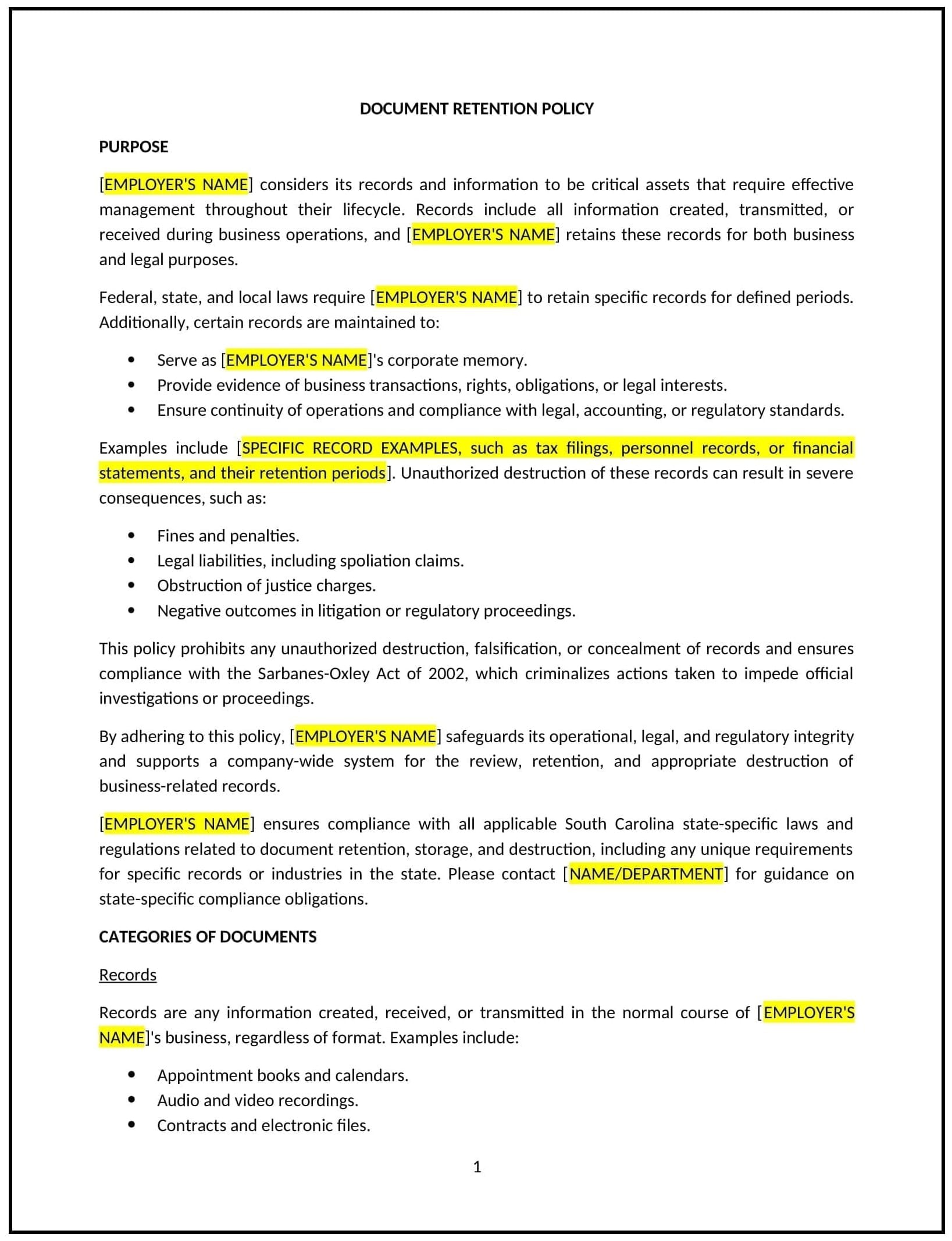Document retention policy (South Carolina): Free template
Got contracts to review? While you're here for policies, let Cobrief make contract review effortless—start your free review now.

Customize this template for free
Document retention policy (South Carolina)
This document retention policy is designed to help South Carolina businesses establish guidelines for storing, managing, and disposing of business records. It outlines retention periods, storage methods, and procedures for securely destroying outdated documents.
By adopting this policy, businesses can improve organization, reduce storage costs, and align with legal and regulatory requirements for recordkeeping.
How to use this document retention policy (South Carolina)
- Define document categories: Classify records by type, such as financial, legal, or employee records.
- Establish retention periods: Specify how long each type of document should be retained, based on legal requirements and business needs.
- Set storage methods: Outline secure storage solutions, such as digital archives or locked filing cabinets.
- Create disposal procedures: Describe how outdated documents will be securely destroyed, such as shredding or digital erasure.
- Train employees: Educate staff on their responsibilities for managing and retaining documents.
- Review and update: Assess the policy annually to ensure it aligns with evolving legal standards and business needs.
Benefits of using this document retention policy (South Carolina)
This policy offers several advantages for South Carolina businesses:
- Improves organization: Streamlines recordkeeping and reduces clutter.
- Reduces storage costs: Minimizes the need for physical or digital storage space.
- Aligns with legal standards: Helps businesses comply with state and federal recordkeeping requirements.
- Enhances security: Protects sensitive information by securely disposing of outdated documents.
- Supports efficiency: Ensures employees can quickly access important records when needed.
Tips for using this document retention policy (South Carolina)
- Communicate the policy: Share the policy with employees and include it in the employee handbook.
- Provide training: Educate staff on their responsibilities for managing and retaining documents.
- Monitor adherence: Regularly review document management practices to ensure compliance with the policy.
- Address issues promptly: Take corrective action if documents are mishandled or retained improperly.
- Update regularly: Assess the policy annually to ensure it aligns with evolving legal standards and business needs.